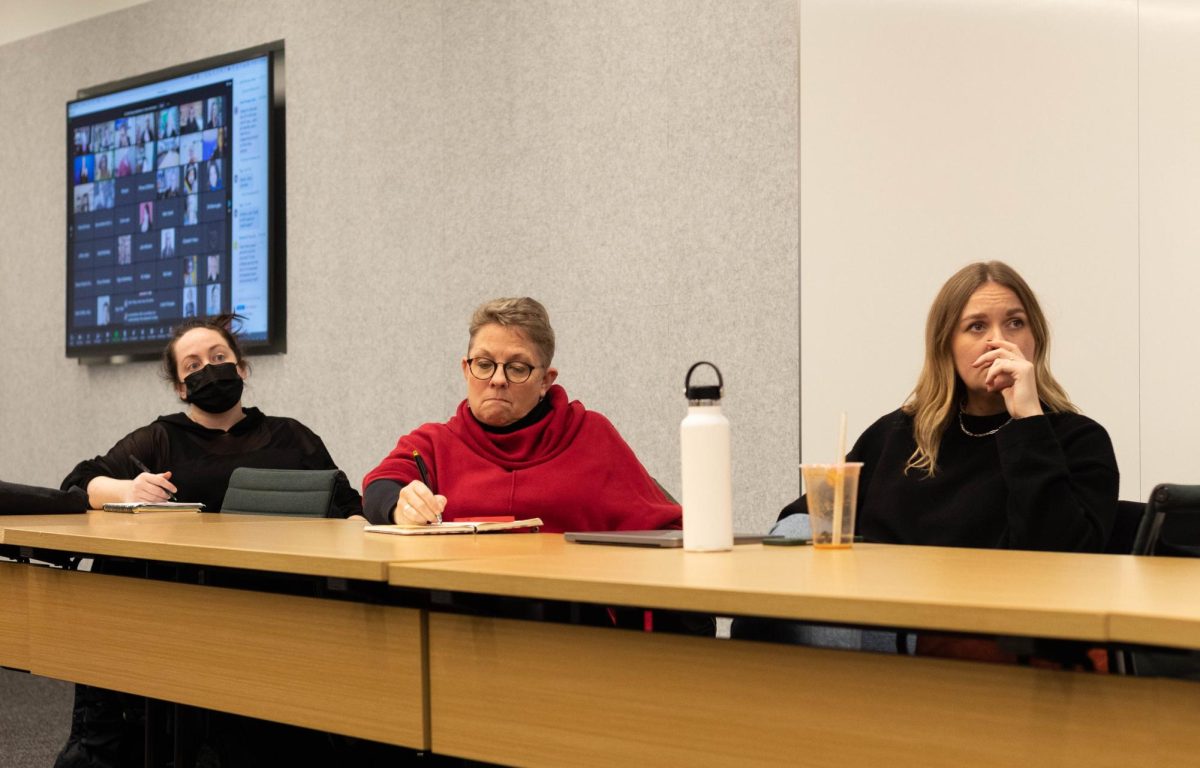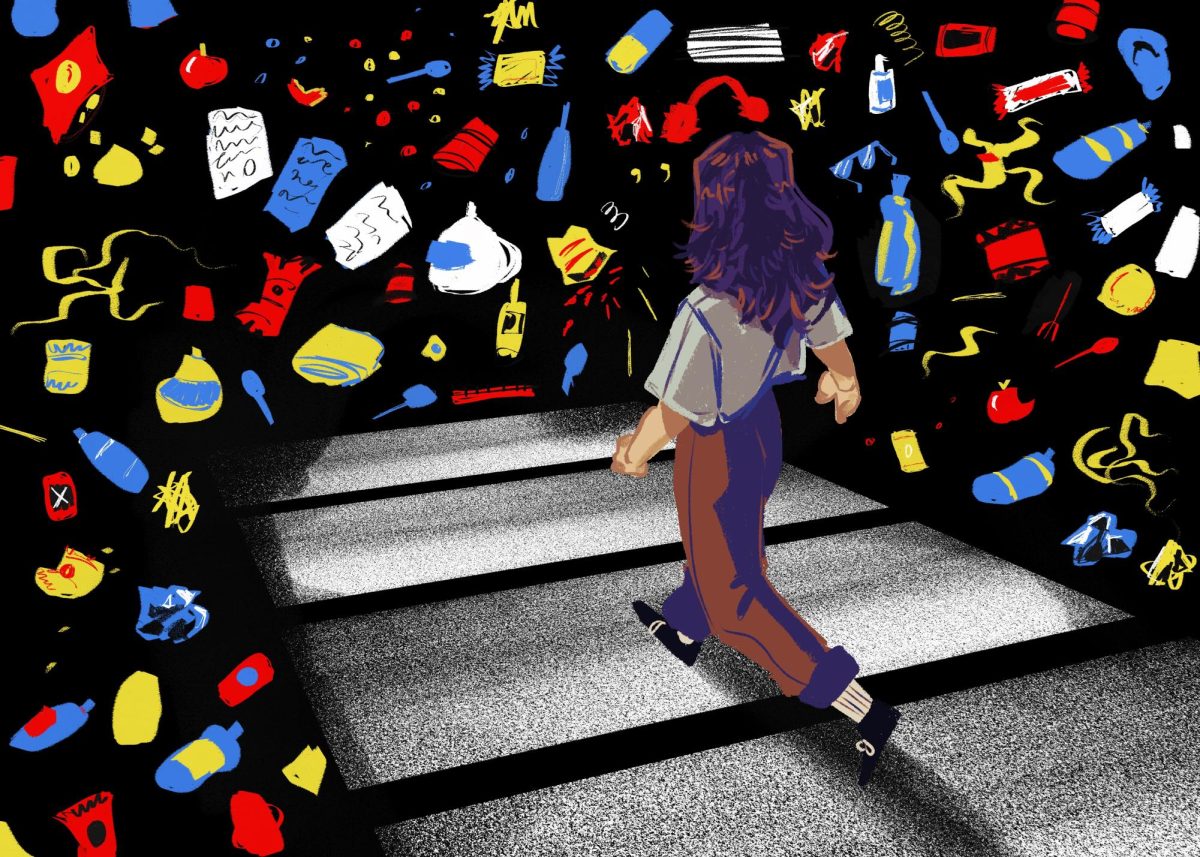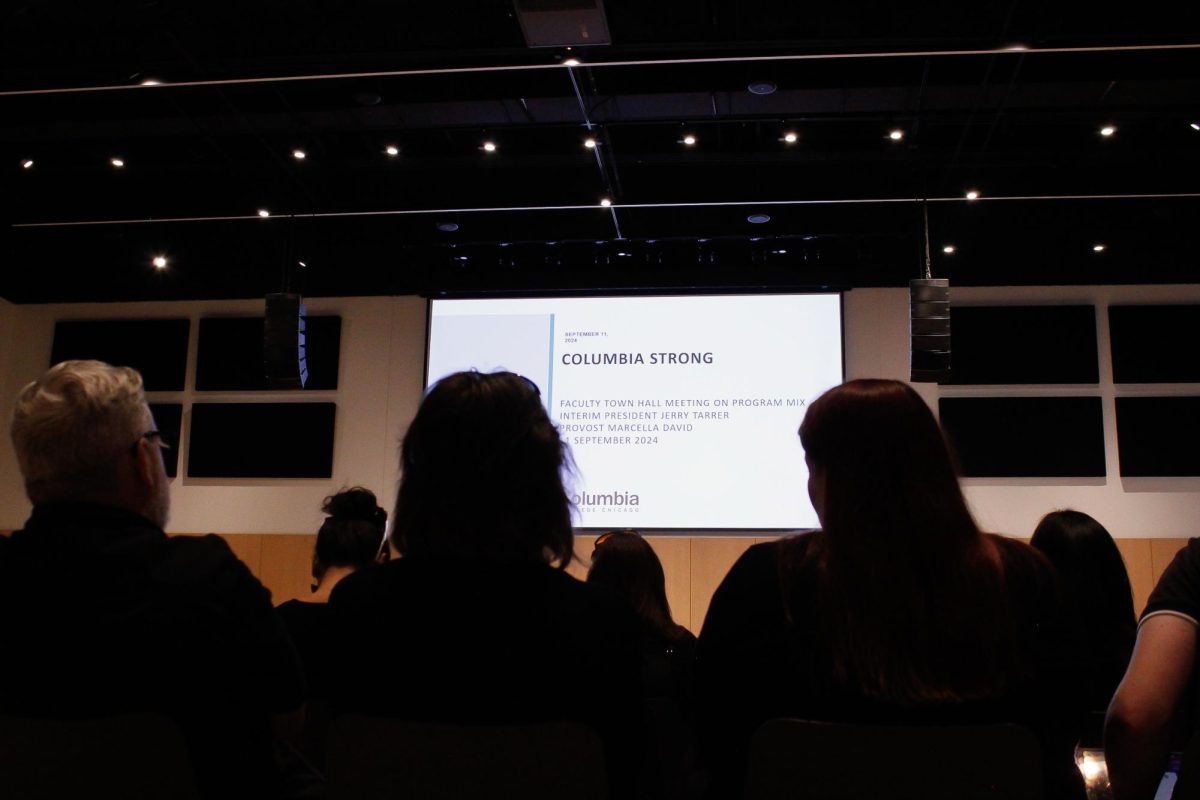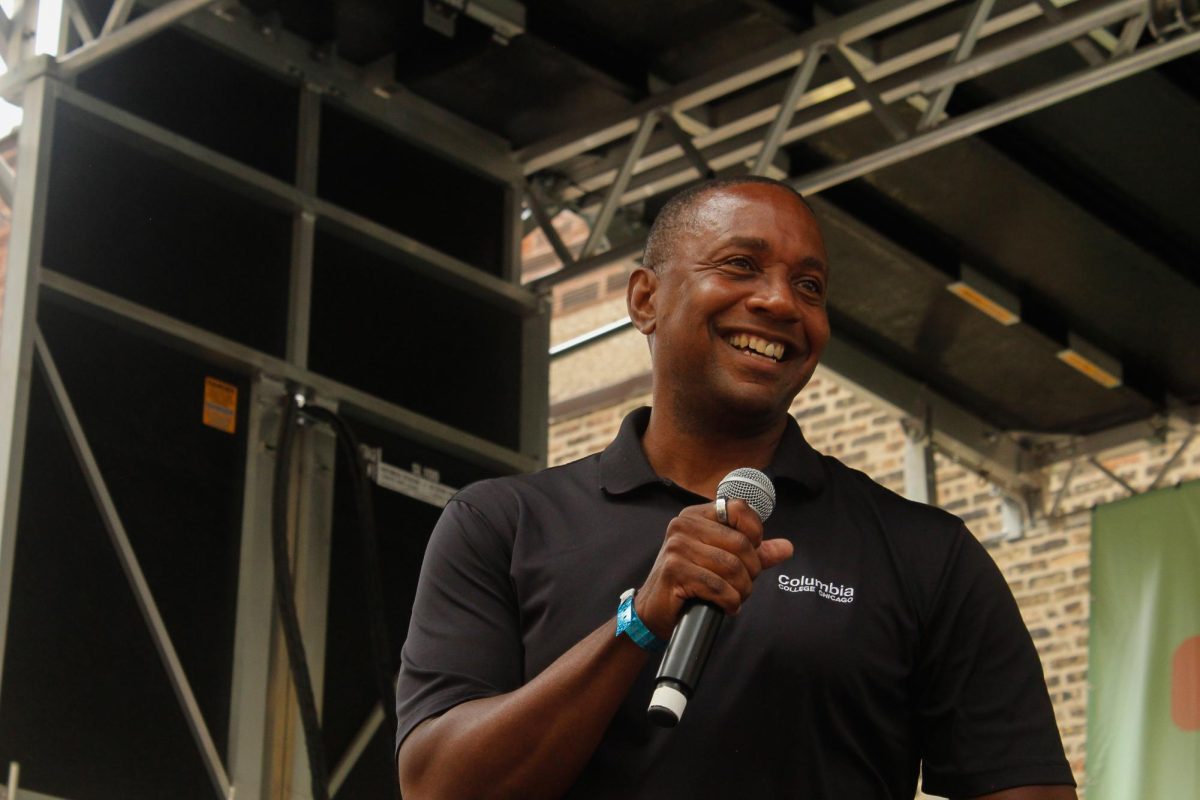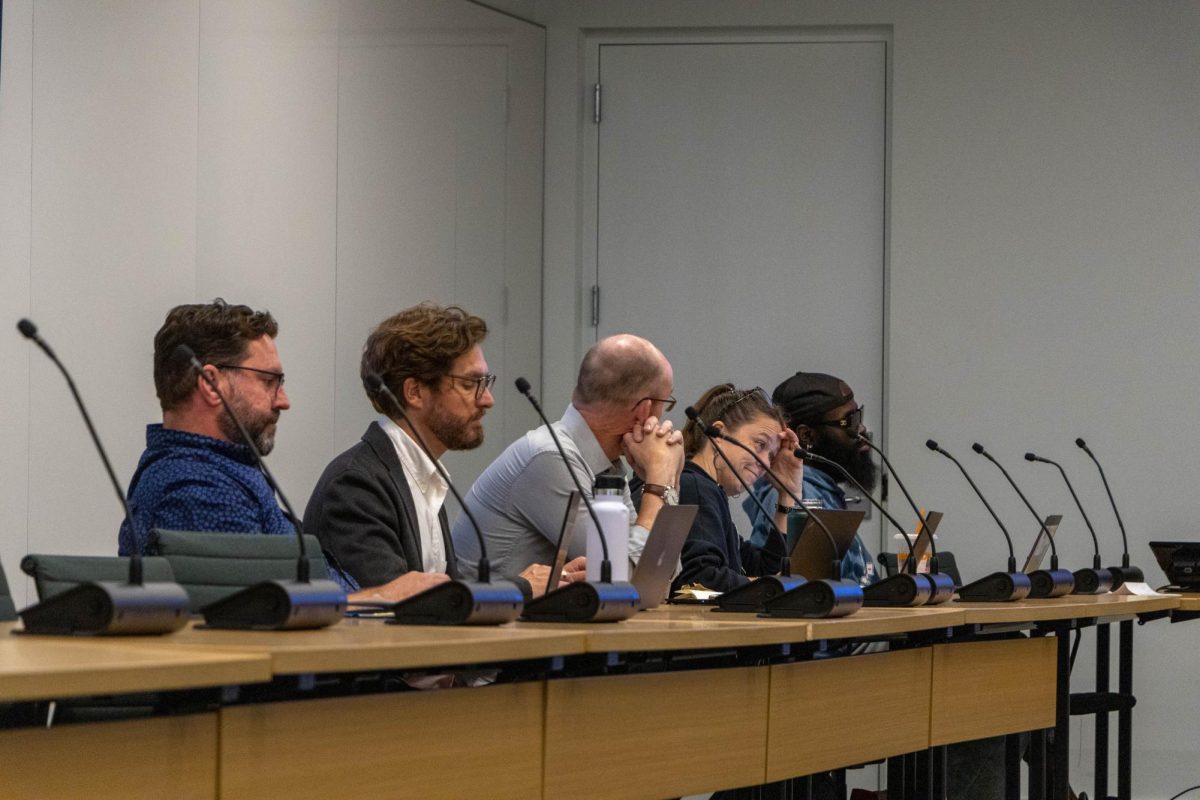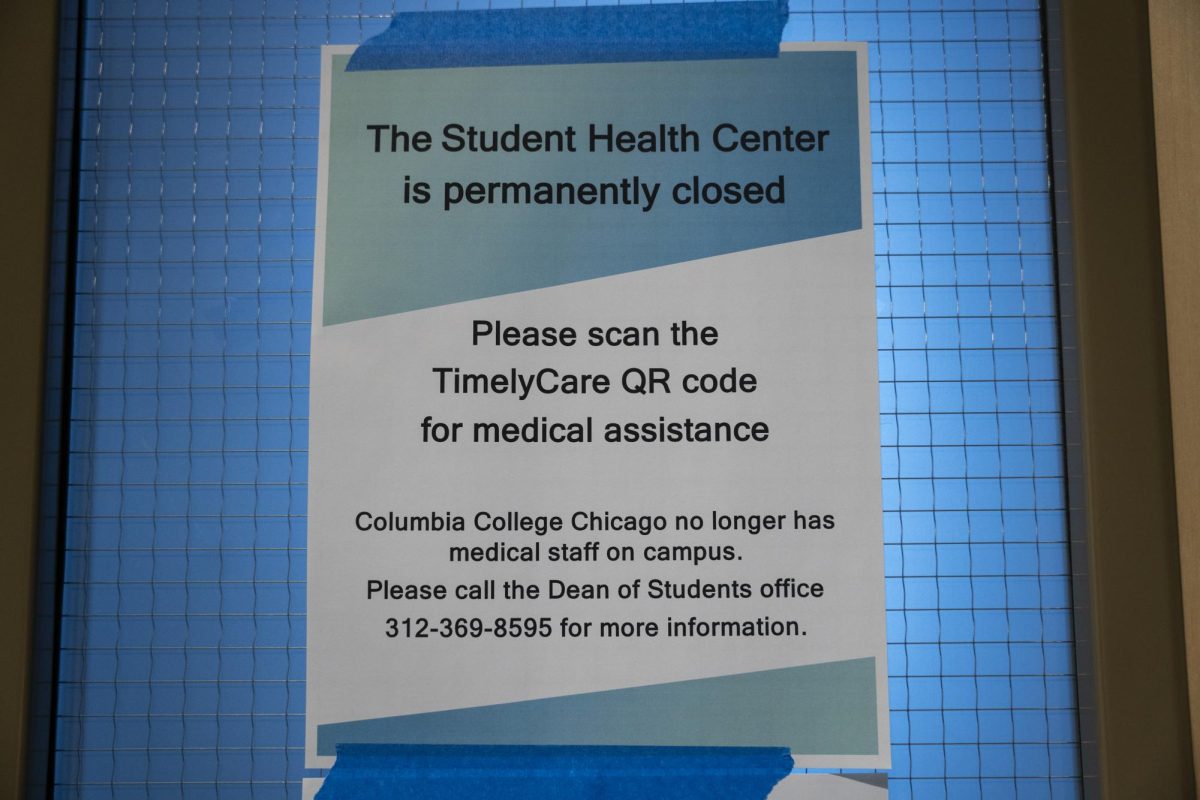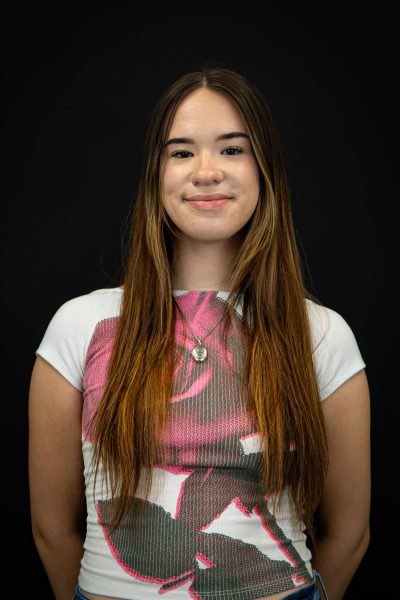Nearly 80 faculty met on Thursday, Feb. 15, to discuss the proposed restructure of the college, the first opportunity for them to ask questions and air concerns since President and CEO Kwang-Wu Kim announced his resignation and budget cuts to close a $38 million deficit.
Faculty expressed concern about the speed of the possible restructuring, including mergers of academic programs and layoffs of full-time faculty.
“Since they don’t have a fixed plan, they’re going to be working up until the very last minute to get a proposal together,” said Faculty Senate President Madhurima Chakraborty.
In light of the deficit, which nearly doubled after the part-time faculty strike in the fall, the college’s Board of Trustees directed Kim to prepare a report with recommendations that could include combining schools and departments and possible elimination of majors.
It was the first meeting of the college’s advocacy chapter of the American Association of University Professors since November during the strike. Chakraborty also addressed faculty, who met in person at the Student Center and on Zoom.
“The No. 1 thing is that I will not lie to full-time faculty. I will not pretend that I know less than I know, trying to make some conversations comfortable,” Chakraborty said. “If you ask me a question I will answer as fully as possible.”
Kim plans to present a report with his recommendations for the restructure to the Faculty Senate on Feb. 28. Under the college’s “Statement of Policy” guidelines, they then have six weeks to review and provide feedback. Kim plans to give a final report to the Board of Trustees on May 2.
Faculty expressed concerns about being able to communicate their worries to the board, which some noted is made up of business people who may not necessarily understand the academic parts of the college.
One issue of particular concern to faculty is a proposal to “embed” the core into the different majors and programs at the college. Some faculty also said they are worried that the restructure will eliminate much, if not all, of the School of Liberal Arts and Sciences, headed by Dean Steven H. Corey.
Katie Paciga, associate professor of education in the Humanities, History, and Social Sciences Department, said in an email to the Chronicle that she worries quick changes to curriculum without “due diligence in exploration of ramifications” could impact the college’s accreditation with the Higher Learning Commission.
Chakraborty said the Faculty Senate’s Executive Committee met with Kim and Senior Vice President and Provost Marcella David this week to ask a number of questions, including whether there was anything they would “absolutely protect.”
David said many programs and parts of the college “are useful” but she has to cut $15 million. “So nothing off the table,” Chakraborty said, relaying the provost’s response. Kim assured the senators that the liberal arts is something he will “not walk away from.”
Kim surprised faculty this week when he announced he would step down on July 1. Senior Vice President and Current Chief Financial Officer Jerry Tarrer will become interim president and CEO on July 2 while the Board of Trustees conducts a presidential search.
Chakraborty said that Faculty Senate leadership will meet with current Tarrer on Feb. 23.
“Our hope in that meeting is for senators to ask questions about Jerry’s vision for the college, especially given this whole circumstance that’s happening and if he plans to influence the writing of the report.” Chakraborty said.
In the meeting, several faculty meetings said they were unclear what would happen to full-time faculty if programs were closed. Some also sought to understand how the layoffs might impact teaching-track faculty, who are assistant, associate and professors of instructions.
The college just hired 14 assistant or associate professors of instruction and one practitioner-in-residence for the spring semester.
“I know that the tenured faculty is used to being so protected, the compromising of that is so scary,” Chakraborty said. “Just the fact that the college is now at the state where any faculty is in danger is scary.”
Joan Giroux, president of Columbia’s AAUP chapter and professor in the Art | Art History Department, said that one point she hopes to bring to the Board of Trustees is that faculty should be directing some of these conversations.
“I feel a lot of positive support from the community who seem eager and ready to work to make sure that the academics here and the education that the students get will remain strong and meaningful.” Giroux said.
As the Chronicle previously reported, Sean Andrews, who is the faculty liaison to the Board of Trustees, said he was “completely blindsided” by the board’s vote to request a report on the severity of the college’s finances and what programs could possibly be cut because the board did this in executive session without him.
“It is unfortunate that there wasn’t some opportunity for the board to consult the faculty and student representatives about this dramatic announcement that so severely impacts the faculty and students of the college,” Andrews told the Chronicle.


